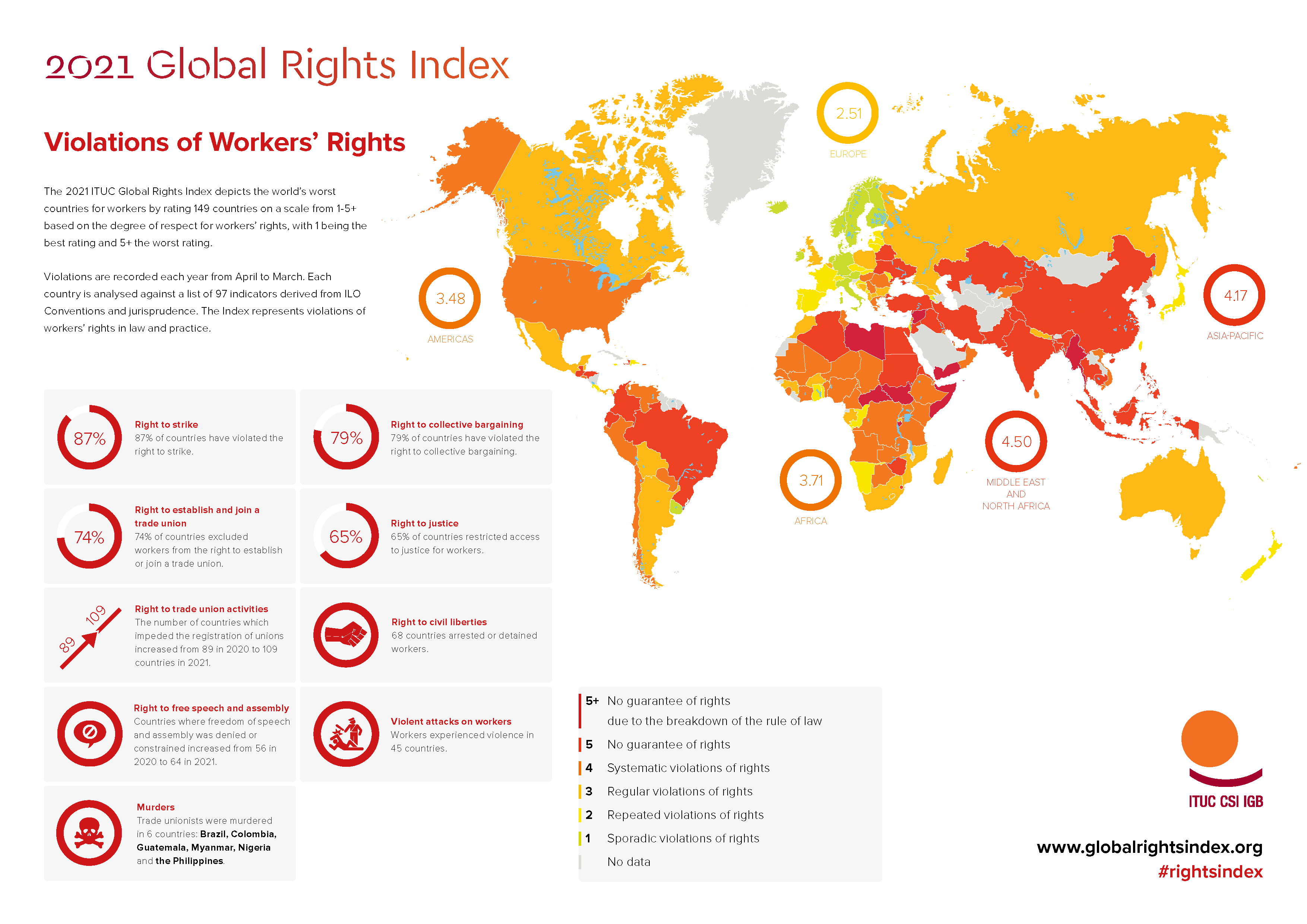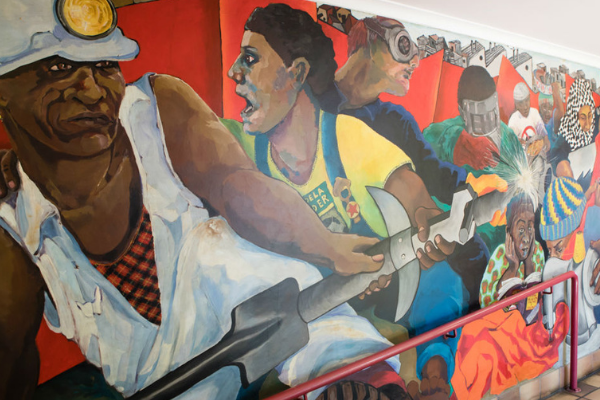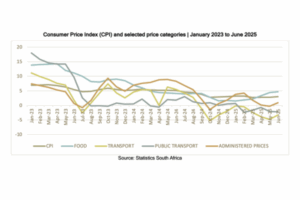The 2021 ITUC Global Rights Index documents how governments and employers have exploited the pandemic to dismiss workers who exposed vital information about the spread of the virus in workplaces; violated collective bargaining rights; increased surveillance of workers and undermined the right to privacy; and restricted free speech and assembly.
Highlights
- Workplaces are becoming less safe, with more restrictions on trade union activity in Belarus, Colombia, Cambodia and Myanmar.
- Surveillance of workers is increasing, with Amazon’s surveillance of warehouses becoming a global scandal.
- Rights are being dismantled as governments have passed repressive laws in Honduras, India, Indonesia, Slovakia and Uruguay.
In a statement, General Secretary of the International Trade Union Confederation (ITUC), Sharan Burrow, said the Global Rights Index shows governments and companies pursued an anti-union agenda even as frontline workers battled to provide essential work and keep economies and communities functioning during the Covid-19 pandemic.
Sharan Burrows, General Secretary of ITUCWhen COVID-19 hit, we learned who the heroes are. Workers everywhere cared for the sick, put food on our tables, and kept the economy moving. But despite all that, workers are under attack like never before. Governments and employers exploited the pandemic to exploit the people the world depends on by increasing surveillance, breaking agreements, laying off workers, blocking and intimidating unions and resorting to violence and murder
In Zimbabwe, union leaders were prosecuted after workers took strike action to secure outstanding pandemic allowances while Falabella, a multinational home retailer, dismissed 22 warehouse workers in Peru who had requested health and safety protections against the coronavirus.
2021 is a year when democracy has come under renewed attack as the number of countries which impeded the registration of unions increased from 89 countries in 2020 to 109 and the number of countries where freedom of speech and assembly was denied or constrained increased from 56 in 2020 to 64 this year.
Belgium, Canada, El Salvador, Haiti, Hungary, Jordon, Malaysia, Myanmar and Slovakia have all seen their ratings worsen in 2021. Myanmar has increased to category 5+, No guarantee of rights, due to the breakdown of the rule of law.
Sharan Burrows, General Secretary of ITUCTrade union leaders from Cambodia, Hong Kong and Myanmar were among those subjected to high-profile arrests – arrests that undermine the rights of workers to representation. While there have been some positive legislative developments – from the PRO Act in the USA, to processes for a due diligence legislation in the European Union which would hold companies to account – much more needs to be done. It will take a New Social Contract, with jobs, rights, social protection, equality and inclusion to rebuild the trust that has been shattered by repressive governments and abusive companies.
The Middle East and North Africa is the worst region in the world for working people for eight years running. Libya, Palestine, Syria and Yemen were still beset with conflict, and fundamental liberties and rights in those countries were trampled.
The ten worst countries for working people in 2021 are Bangladesh, Belarus, Brazil, Colombia, Egypt, Honduras, Myanmar, the Philippines, Turkey and Zimbabwe.

The eighth edition of the ITUC Global Rights Index ranks 149 countries on the degree of respect for workers’ rights.
Some key findings from the report
- 87 per cent of countries violated the right to strike.
- 79 per cent of countries violated the right to collectively bargain.
- 74 per cent of countries excluded workers from the right to establish and join a trade union.
- The number of countries that impeded the registration of unions increased from 89 in 2020 to 109 in 2021.
- Two new countries entered the list of ten worst countries for workers (Belarus and Myanmar).
- The number of countries which denied or constrained freedom of speech increased from 56 in 2020 to 64 in 2021.
- Workers were exposed to violence in 45 countries.
- Workers had no or restricted access to justice in 65 per cent of countries.
- Workers experienced arbitrary arrests and detention in 68 countries.
- Trade unionists were murdered in six countries: Brazil, Colombia, Guatemala, Myanmar, Nigeria and the Philippines.







